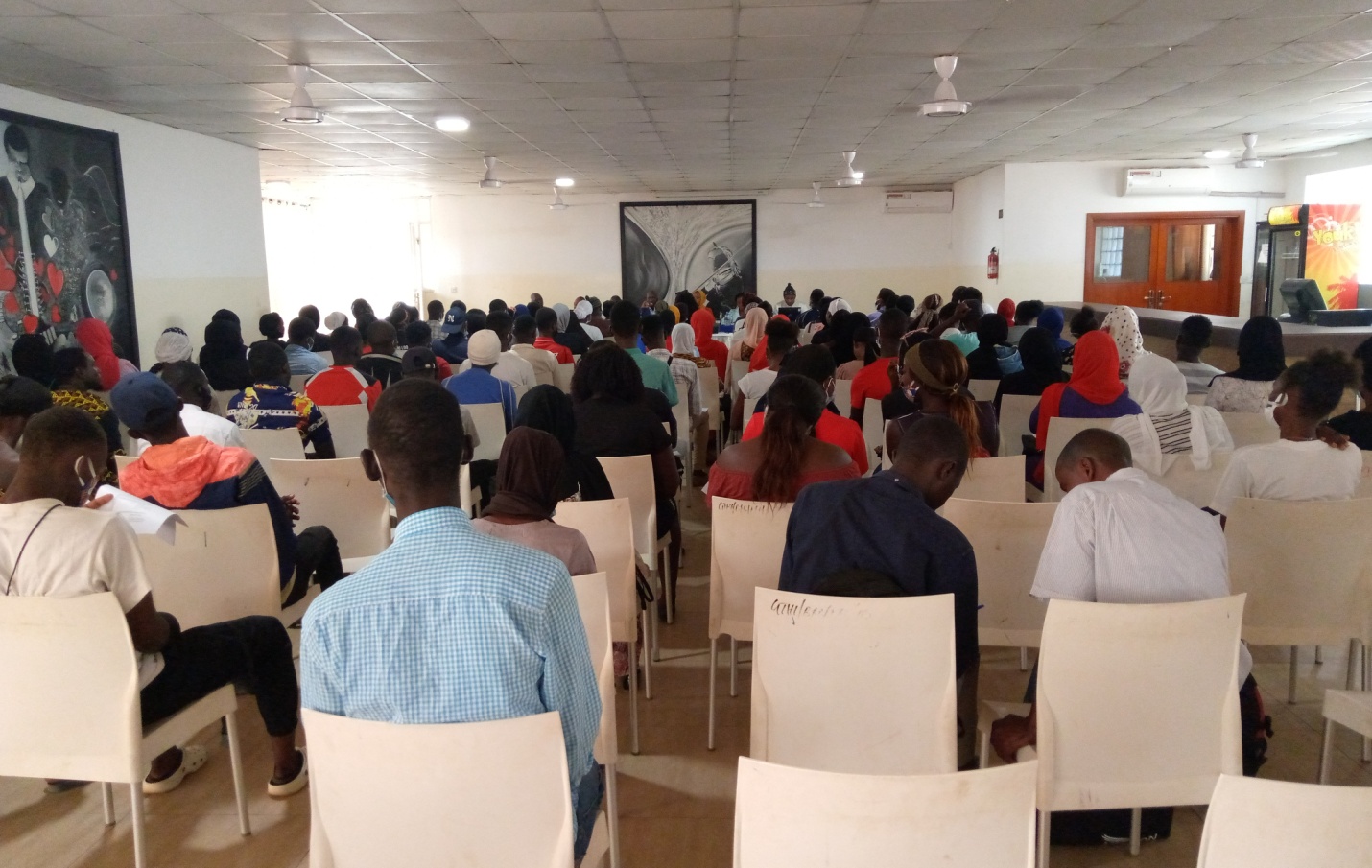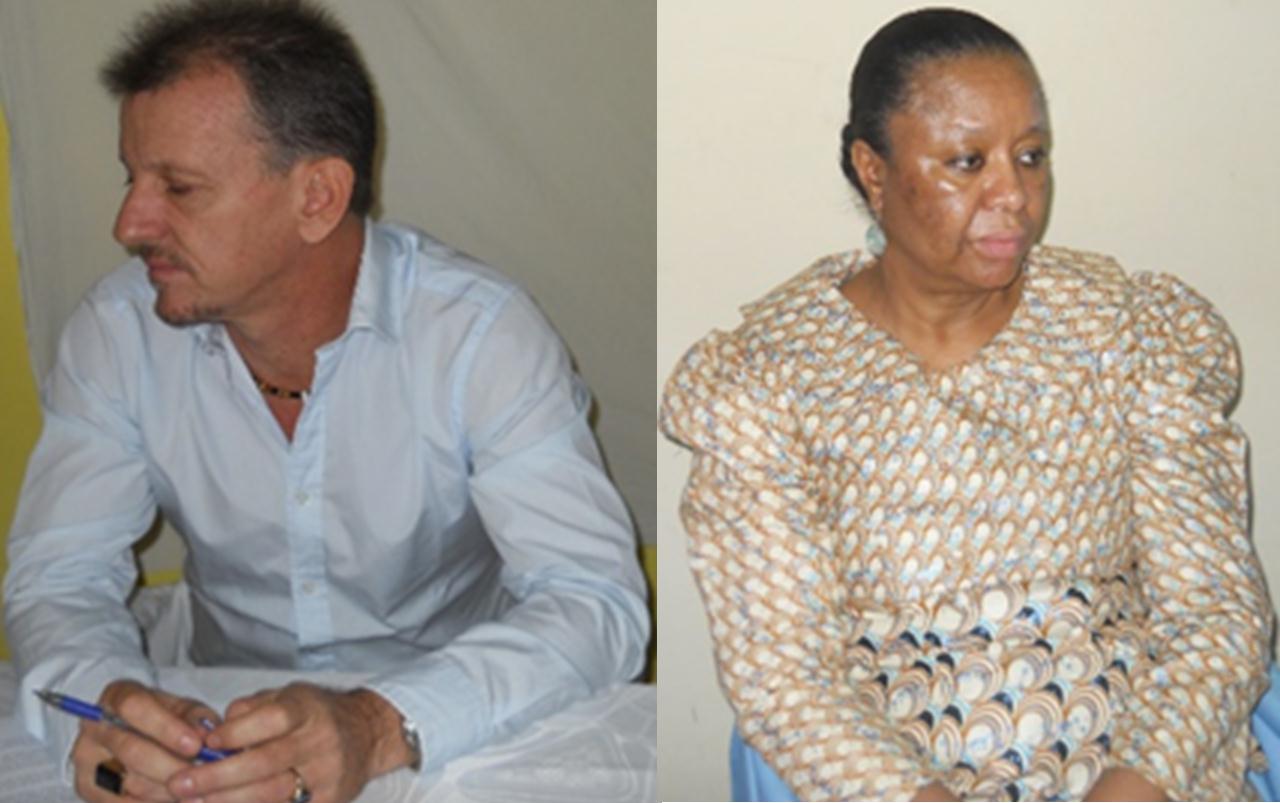
May Day also called Labor Day is celebrated worldwide on May 1st each year and The Gambia is no exception in observing this all-important day and occasion. In the Gambia it is celebrated with sports where workers organized a tug of war, a symposium and a musical jamboree in commemoration of the day.
In 2023, the World Bank revealed that almost 37% of young people are not in education, employment, or training (NEET). The youth labour force participation rate is low at 35% compared to 62.1% of ages 35-64. The challenges are numerous, multi-faceted, and require attention.
However this year’s Labor Day, Gambian laborers share some of the challenges they face as a laborer.
Binta Jagne (not her name) a Super Market Cashier said that her work place has no structure and no contracts are signed and this allows their employers to get away with a lot of things.
“I work as a cashier in this supermarket owned by Lebanese but as a cashier they will want me to also be their cleaner, and when starting the work no contracts are given for us to sign and this allows them to sack some employees without payment, they do not give us any respect because they are powerful in society and they have connections with people in high places so even if you take them to police nothing will come out from it” she said.
“I wish I had a better job but this is the one I have for now, sometimes they arrogantly tell you to quit if you are tired of the job but we don’t really have a choice because we need to work”, she further laments.
She added that they don’t get to enjoy festive holidays or even public holidays and if they decided to skip work thus, it is deducted from their salaries.
“All we ask for is for them to give us our respect as employees because the disrespect is just too much sometimes”, she pleads.
Matarr Jassey a Cameraman said that salaries really need to be increased in work places so that workers can benefit financially from the work they do.
He added that transportation or vehicles should be provided for workers, “workers should be provided with a vehicle that will drop off staff after work, I believe this will help workers a lot, institutions should also provide health insurance for their workers and also give them bonuses every end of year this is possible because workers dedicate their lives to working for you and when you make millions you should compensatethem once in a while at least,” this and more he mentioned.
Ndey Ceesay a communication officer at a Civil Society Organization (CSO) said that there should be a free space for lactating mothers, “I understand that when women give birth they are given maternity leave but what if the maternity leave is over and they are supposed to resume work with their children, and I believe every woman that has a child or is taking care of a child should be provided with that environment, I believe when employers are employing people they should take this into consideration but not everyone can pay for a nanny”.
She added that most of the office buildings are not conducive for persons with disabilities and they should put this into consideration so that persons with disabilities can have access to all things as abledpersons.
Ndey however says she loves her job and she is in fact always anticipating for Mondays so that she can serve the people as here work is about advocacy.

Ndella Faye a house maid says that her job as a house maid is not easy at all, “every day I wake up at 6am to prepare for a job that is sometimes full of so much disrespect from the people I work for and that too for such a very little pay, I usually close work at 5pm and sometimes when the work load is too much, my employer will ask me to stay longer and finish it before leaving”.
She also said that the sad part of her job is not getting any leave and sometimes even if she is sick, she is expecting to go to work, “I remember when I was pregnant for my first child and I was heavily pregnant, that did not stop me from going to work because if I stop going I won’t receive any pay at the end of the month so I have to force myself even if I’m dying and after giving birth, I’m expecting to start work in less than a month or else you job will be given to someone else”.
Samba Bah a Barista and a lecturer at the Media Academy for Journalism and Communication (MAJaC) said, the right to employment is a fundamental right and a socio economic right.
“As far as somebody is employed, they have entered into a relationship of rendering their service be it formal or informal, they are workers and a worker is somebody who sells their services so in that relationship you can definitely say that they are employed irrespective of the type of employment whether there are written contracts, written agreements or implied agreements that is still an employment.
He therefore said that maids and other domestic workers who are in most cases not provided with appointment letters or employment contracts are also employees of those that have employed them so to some extent they are entitled to a fundamental right and privileges of an employee from an employer.
“Specifically if you look at the labor law of the Gambia 2003, it doesn’t mention maids or gatemen whatsoever, all it provides for is an employer and employee relationship that is someone that is employed so in essence they are entitled to all these rights that an employee is entitled by virtue of their job irrespective of the type of job they do”, he explained.
He added that “section 60 of the labor act provides for the rights of female employees with right to sick leave, right to maternity leave (with pay) and more as provided by the women’s act in 2010”.
He advises laborer to seek redress from the labor department when their rights are violated or they can also sue their employers by going to court even without a signed contract, “contracts can be signed in different forms you have written contracts, you have oral contracts and you also have implied contracts so they can prove their cases by calling up witnesses and with other forms of evidence they have”.
The Minister of Youth and Sport Hon. Bakary Y. Badjie on the commemoration of Labor Day 1st May in Banjul at the Mccathy Square said, their approach includes creating an enabling environment where the private sector can thrive, acknowledging that while the government plays a crucial role in job creation, “it is through public-private partnerships and a robust, supportive legislative framework that sustainable employment is most effectively generated. To this end, our ministry is focused on implementing stable policies and a fair tax regime that encourages private sector growth and innovation”.
PAPEV holds first Committee Steering Meeting

The Support Project for the Protection of Children Victims of Violations of their Rights (PAPEV) last week held its first committee steering meeting in a local hotel in Senegambia, West Coast Region.
The workshop aimed to review and adopt the first PAPEV Phase II work plan.
PAPEV Project seeks to support the governments of The Gambia Government to strengthen national Child Protection systems.
The project is financed by the Italian Agency for Development Cooperation through the Office of The United Nations High Commissioner for Human Rights (OHCHR), and a grant to the ECOWAS Gender Development Centre to support to Strengthen reception services for Children Victims of Human Rights Violations.
The PAPEV phase II seeks to define priorities and strengthen the national child protection system in the country.
The PAPEV Phase I supported reforms efforts in child protection, access to knowledge, strengthening of child protection service delivery, and the strengthening of the skills of care workers.
In her remarks, Aminata Kebe, Regional Coordinatorof PAPEV said the importance of the PAPEV Phase II cannot be overemphasized.
She said that the project focuses on inclusion of vulnerable groups such as children with disabilities and mobilization and capacity to strengthen of grassroots actors.
“This marks a turning point in our commitment to support the advancement of children’s right in the Gambia,” she added.
Lamin Jawo, speaker of the Children Parliament said the population of children in The Gambia should not only be used in data analysis.
“Child rights are not merely words written on papers but foundations upon which a brighter and fairer future is built. Our Nation’s hopes, voices and dreams are encapsulated within these rights,” he said.
He welcomed the PAPEV Phase II as a means of a collective duty to make sure rights are promoted and protected.
“We hope this meeting serves as a beacon of hope and collaboration, illuminating the path toward a future where the rights of children are not just acknowledged but actively protected and celebrated,” he remarked.
Representing the Minister of Gender, Children andSocial Welfare Jankoba Jabbi, Director of Social Welfare said child protection is everybody’s business.
“Therefore, the Ministry will continue to encourage this multisectoral collaboration as we continue to work together to push forward the agenda of child protection,” he added.
He said one of the greatest resources of this nation is its children, adding that the government is taking an uncompromised stance in combating violence against children.
He further said the government is committed to protect the well-being of children in The Gambia.
“Our children need us to accompany them to stand solidly and access platforms that will amplify their voices on issues that affect them,” he added.
He said there is a need to review and reform the legislature that will promote and protect the rights of children in the country.
“Now more than ever, do we need to take our stance in the holistic implementation of policies and programs for children and young people.”
“The Ministry will continue to stand strongly behind you as you go beyond the validation of the work plan to the implementation of the planned activities for 2024,” he concluded.





